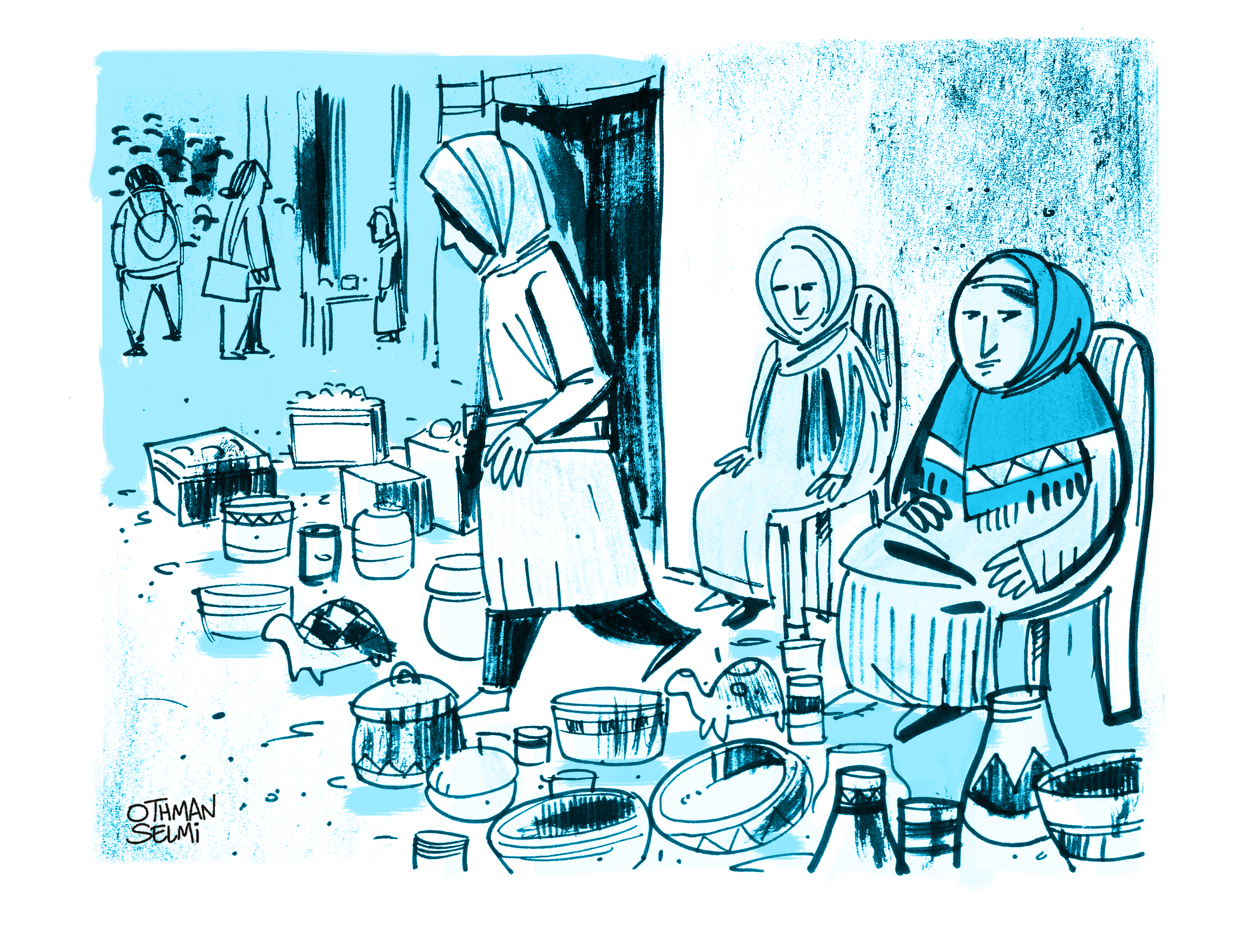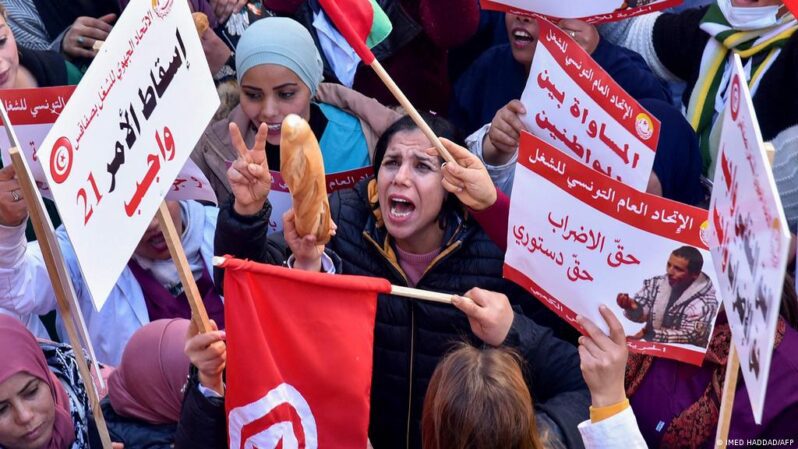The Association of Tunisian Women for R&D: Creating Alternatives to Foster Inclusion

After Tunisia’s 2011 revolution, the Association of Tunisian Women for Research and Development (AFTURD) – predominantly a research organization – bolstered and expanded its activities to encompass all regions and focus more on fieldwork, albeit via the same scientific, research-driven approach that it had followed for more than a quarter of a century. It was in this context that it worked on the issue of social solidarity economy (SSE), helping to establish and elaborate successful and effective means of intervention to ensure the socioeconomic inclusion of women and youth facing marginalization.
Based on the deterioration of socioeconomic circumstances in Tunisia, the development paradigm’s limited nature and inability to meet the aspirations and entitlements of youth and women (particularly in the periphery), and the experiences that have shown SSE’s success in creating and preserving decent jobs, generating wealth, reducing social inequality, and promoting local development,[1] AFTURD endeavored to coach and support SSE initiatives involving women victims of violence, domestic workers, and women from the underprivileged area of Ghezala in Bizerte Governorate.
The Methodology Adopted
AFTURD is convinced that development experiments dictated from above and vertical relationships have failed and that the participatory approach based on horizontal, interactive relationships is important. Hence, it believes that everyone concerned with the development process is a participator, not just a beneficiary, and therefore has the right to actively participate in all stages of the programs, projects, and activities concerned, from diagnosing needs, to elaborating visions and goals, to the processes of execution, follow-up, evaluation, and amendment until the anticipated results are achieved and sustained. AFTURD’s work therefore focused on individuals to ensure effective participation and sow the idea that the enterprises formed in the framework of SSE are lifelong projects that they must work diligently to make successful and sustain. On this basis, AFTURD’s work occurred on many fronts:
Human Capital
On one hand, AFTURD focused on strengthening self-confidence, a sense of pride, and self-affirmation among women. It also worked to raise awareness of the right to work and to decent work, addressing topics such as occupational safety, wages, working hours, economic violence, and harassment.
The association also focused on sowing the idea of working in groups or teams. While SSE is based on groupwork, many of the participants lacked group spirit and preferred individual work and family microprojects. Hence, the association had to work intensively, via training courses on communication, dividing roles, and follow-up over the course of the project, in order to develop group spirit and team cohesion and entrench the idea of working with others in a solidaric manner by contributing ideas, suggestions, and efforts to the team’s work.
Occupational training was also very important. AFTURD provided many workshops to build the professional competence and capacity of the women and youth, taking into account their inclinations and the demands of the market.
Funding
Alongside the work on human capital, the association strived to provide funding. It contacted its partners to raise the idea of the enterprises, introduce their activities and objectives, and obtain funding. These efforts culminated in success, and the necessary funding was provided.
Marketing
In practice, microprojects have generally been limited or failed because of difficulties in marketing and selling the products and services. Moreover, the participants often lack experience and have limited connections. Hence, the association works on training and capacity-building in this area (e-commerce) and on creating a direct marketing route that provides a reasonable profit margin.
Selecting the SSE Activities: Variables and the Influence of Context
The association worked to foster activities to ensure their success and sustainability and that they offer original products and services. While the activities within the enterprises that the association helped to establish in the SSE framework – such as sweet making and domestic work – were ostensibly “traditional” and associated with women per social norms, the general context and participatory approach adopted played a role in this tendency and the selection of activities to adopt.
For women victims of violence, the factors of age, academic and professional qualifications, and inclinations have an important role in the selection of activities for which to provide training as a significant portion of them have knowledge and skills related to a particular field. Similarly, the limited education level of most of them prevents their professional training in specializations that require a minimum level of knowledge, study, and professionalism. For some women, advanced age is another obstacle. Hence, because of their preparedness, age, and inclinations, they generally prefer to work in areas to which they are accustomed, primarily related to cooking.
AFTURD respected these inclinations and directed the women toward specializations that accord with market demands, primarily healthy products such as sweets that are low-sugar, made with natural sugar (dates), or gluten-free and whole-grain products. In all cases and across the various activities, the women sought novel products unlike those traditionally available and prevalent in the market – a factor that, from AFTURD’s perspective, helps guarantee success and sustainability.
Geography is also an important factor in the selection of activities to adopt. For example, in Ghezala, AFTURD took into account the particular nature of the region and the participants. As the surrounding area is agricultural, the activities are based on the region’s produce, particularly grains and vegetables. The project in this region is also integrated, combining economic and social dimensions. For example, a childcare facility was established so that the women could persistently participate in the activities with their children nearby, which helps ensure the success and sustainability of the economic enterprise.
The SSE Enterprises
Establishing a Cooperative for Domestic Services
The Idayat [Hands] cooperative comprises 30 female domestic workers and is based in Ariana Governorate. AFTURD managed to obtain funding from the government of Valencia in Spain and to provide the necessary equipment to operate the cooperative and ensure its sustainability and success. The association joined it as a member, and its representative was elected to the board so that it could provide close ongoing coaching and supervision. In July 2020, the legal procedures for the cooperative were completed, and it was registered in the National Register of Enterprises.
Establishing Two Limited Liability Companies
AFTURD partook in the establishment of Afrah Ghezala [Joys of Ghezala] in the Bizerte Governorate and another enterprise in Ariana Governorate involving a group of women victims of violence. The activities within these two enterprises involve making sweets and transforming foodstuffs. Each enterprise was joined by two young women with university degrees. All four face marginalization because of prolonged unemployment and poor socioeconomic conditions.
Moreover, both enterprises were, like the cooperative, supported with the necessary equipment and premises using financial support from the Spanish Agency for International Development Cooperation.
Conclusion
SSE enterprises can help its participants achieve economic independence and thereby help reduce the phenomenon of gender-based violence, as economic dependence is a significant factor causing women to accept violence. Establishing the enterprises took more than a year of preparation work by AFTURD to ensure that the groups participating were ready and to resolve legal issues. As the association deems the coming stage to be extremely important, particularly given how limited these experiences are, it is necessary to work to present and raise awareness of these experiences. Doing so will allow discussion and the construction of an approach and model that can inform future strategies and action plans in this development paradigm in order to create jobs and wealth, whether on the local, regional, or national scale.
This article is an edited translation from Arabic.
* Ben Taleb and Sebei are members of AFTURD
[1] La contribution de l’économie sociale et solidaire et de la finance solidaire à l’avenir du travail, Bureau international du Travail, Genève 2019.




